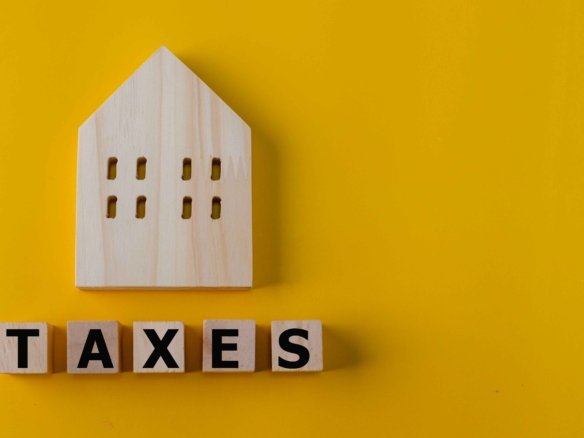Tax deed auctions are an exciting opportunity for investors to purchase real estate at a fraction of its market value. When property owners fail to pay their taxes, counties can auction off these tax deed properties to recover the unpaid amounts. Buyers often see this as a chance to acquire homes, land, or commercial properties for much less than traditional real estate listings. While the potential is great, the process is filled with complexities, and mistakes can cost both time and money.
Why Tax Deed Properties for Sale Attract Investors
Tax deed properties for sale have a unique appeal. Unlike traditional listings, these sales can include homes or parcels of land that may otherwise be unavailable on the open market. Some investors search for distressed homes to renovate and resell, while others look for vacant land to hold as a long-term investment. The affordability and accessibility of these properties make them appealing, but their advantages can quickly diminish if buyers do not fully understand the risks involved.
The Importance of Research Before Bidding
One of the most common mistakes at tax deed auctions is failing to research properties beforehand. Every parcel offered at auction comes with a history, and buyers who skip their due diligence may inherit problems they never anticipated. Title issues, outstanding liens, environmental restrictions, or zoning complications can turn what seemed like a bargain into a financial nightmare. Successful bidders often spend days or even weeks reviewing tax records, property maps, and court documents to avoid surprises.
Overestimating Property Value
Another frequent error buyers make is assuming that every property sold at a tax deed auction is worth far more than the opening bid. While it is true that many parcels sell below market value, not all tax deed properties hold significant resale or rental potential. Some may be located in areas with low demand or limited infrastructure, which reduces their long-term profitability. Overestimating value leads to overbidding, which ultimately defeats the purpose of finding a good deal.
Ignoring Location Factors
In real estate, location is everything, and this rule is no different at tax deed auctions. Properties listed may be in rural areas, on inaccessible lots, or in neighborhoods facing economic challenges. Buyers who ignore the importance of location may end up with land or homes that are difficult to resell or rent. Properly evaluating surrounding development, nearby amenities, and long-term growth potential is essential for making smart purchases.
Confusing Tax Deeds with Online Tax Lien Sales
Many new investors confuse tax deed auctions with online tax lien sales, but they are not the same. In a tax lien sale, buyers purchase a lien against the property and earn interest while waiting for the owner to repay the debt. In contrast, a tax deed auction transfers ownership of the property itself to the highest bidder. Mixing up these two processes leads to misunderstandings about rights, responsibilities, and timelines. It is critical to understand which type of investment you are pursuing before placing a bid.

Underestimating the Competition
Tax deed properties for sale often attract seasoned investors who know the process inside and out. New buyers sometimes underestimate the level of competition and assume they will easily walk away with a property. In reality, experienced bidders often have strategies that allow them to identify the most valuable parcels and outbid newcomers. Entering an auction without preparation or clear limits can result in emotional bidding wars and overspending.
Forgetting About Redemption Periods
In some states, properties sold at tax deed auctions still carry a redemption period, allowing the former owner time to reclaim their property by paying off the debt. Buyers unaware of this process may wrongly assume immediate possession. Not accounting for redemption rules can delay plans for renovation, resale, or personal use. Understanding state-specific laws and timelines is a key part of successful investing.
Neglecting Hidden Costs
A property’s winning bid is rarely the only expense buyers will face. Title clearing, property inspections, repairs, and ongoing taxes all add up after the purchase. Those who ignore these hidden costs may struggle to turn a profit or even afford to keep the property. Wise investors calculate potential expenses in advance and bid accordingly, ensuring they maintain room for future returns.
Relying Too Heavily on Online Information
The rise of online tax deed auctions and online tax lien sales has made it easier than ever to participate from anywhere. However, a common mistake is relying solely on online descriptions and photographs without verifying the property in person or through reliable third-party research. Pictures may not show the full condition of a building, and descriptions may overlook critical details. Whenever possible, conducting a site visit or hiring a local professional reduces the risk of costly surprises.
Failing to Set a Bidding Strategy
Emotions run high in auction settings, and buyers who do not establish a strategy beforehand often overspend. A lack of discipline when bidding leads to financial mistakes that could have been avoided with simple planning. Smart investors set strict maximum bids based on research and never exceed them, regardless of the pressure of competition. Without a strategy, the excitement of the auction can quickly turn into regret.
Ignoring Legal and Title Issues
Purchasing tax deed properties for sale does not always guarantee a clear title. Outstanding mortgages, IRS liens, or legal disputes may still attach to the property after the sale. Many first-time buyers assume they are receiving free and clear ownership, only to discover legal complications later. Conducting a title search before bidding ensures clarity and helps avoid unexpected legal battles.
Overlooking Property Condition
Tax deed properties often come in “as-is” condition, meaning buyers take on all repairs and maintenance. From structural problems to environmental hazards, issues may remain hidden until after the purchase. New investors sometimes underestimate the cost of repairs, which can quickly erode profit margins. Properly accounting for potential renovations ensures buyers avoid being caught off guard.
The Path to Smarter Tax Deed Investing
While mistakes are common, they can be avoided with preparation, research, and discipline. Understanding the differences between tax deeds and online tax lien sales, recognizing hidden costs, and respecting the importance of due diligence will make the process more manageable. Buyers who treat these auctions with the seriousness of any other investment stand the best chance of long-term success.
Get Expert Guidance and Exclusive Listings
Navigating tax deed auctions does not have to be overwhelming. At TD Hunter, we make it easier for you to get started. Receive 3 expert-vetted listings by email each week, plus our beginner-friendly guide that walks you through the entire tax deed process—from bid to sale.
You can download your E-Book on this page: https://tdhunter.com/checkout/?change_plan=277
Thanks and welcome to your journey into smarter tax deed investing!






Join The Discussion